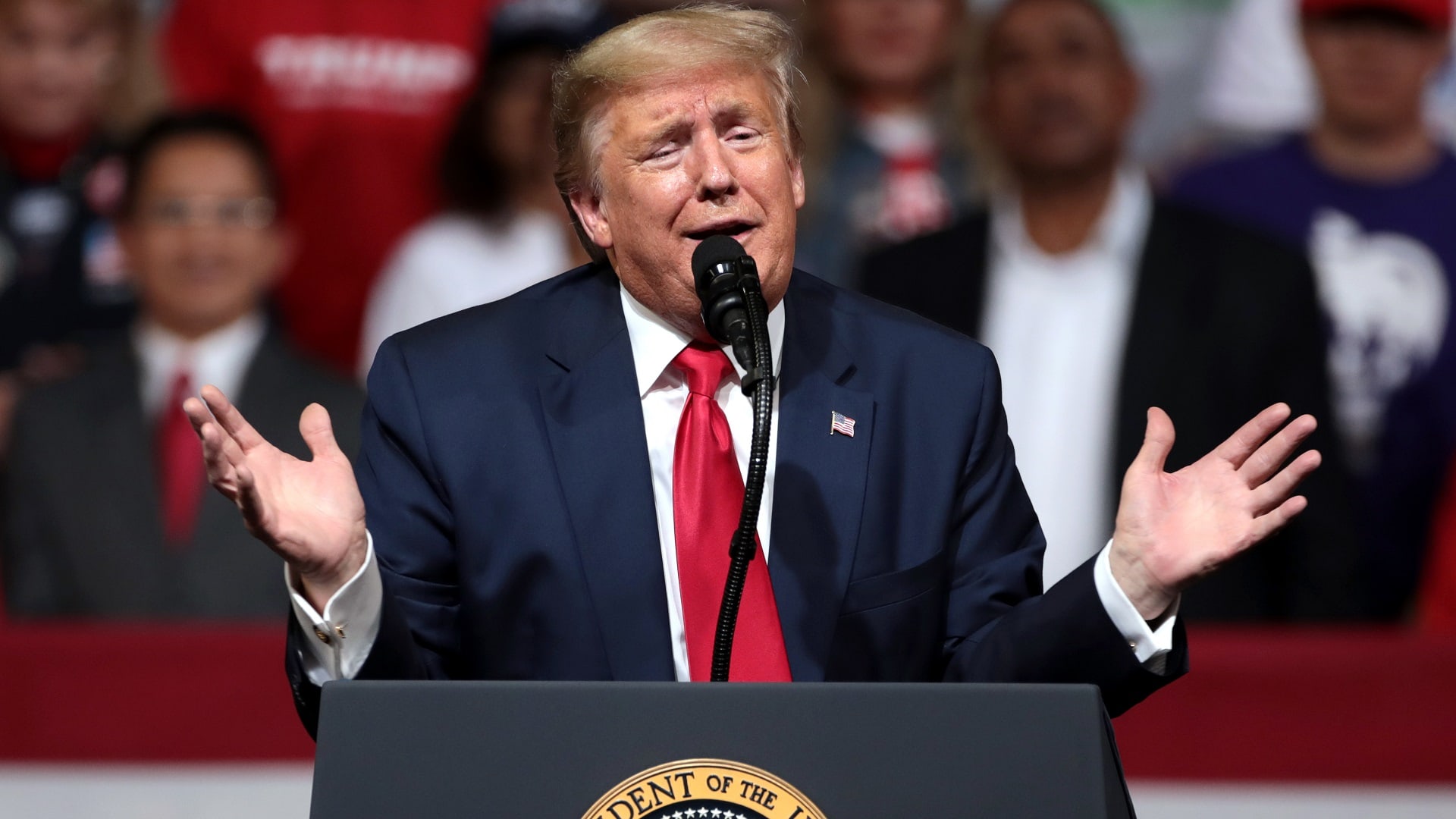I suppose he could try it. Donald Trump is capable of anything due to the legal walls closing in on him. I’m talking about a self-pardon that could happen if he wins the primary, is victorious in the general, and is guilty of mishandling classified documents.
Remember that the charges of falsifying business records in the hush money scheme to an adult video star are state charges, and he would not be able to pardon himself for those. Then there is the federal investigation into Trump’s actions leading up to and during the January 6 insurrection. This case has the same general counsel who clearly has it in for Trump.
Here is a rundown of how event could play out for Donald Trump.
There Are More Potential Broken Laws
Don’t forget the probe into Trump’s alleged actions that he purportedly interfered with the 2020 presidential election in Georgia. Should he be indicted by a grand jury and convicted by a Fulton County prosecutor, it would be a state conviction that would not allow for the former president to pardon himself.
Of course, a self-pardon has never happened before and there is a low likelihood it could come into play. Trump would have to first be elected, and if the federal cases against him were not fully adjudicated, he could try and pardon himself before he is convicted. Trump has reportedly discussed that scenario with his aides.
Donald Trump Could Keep Running, Even From a Jail Cell
He could run for president from jail on the potential classified document conviction or the Stormy Daniels charges if the worst were to happen. Socialist Eugene Debs did this in a run for president in 1920, but he was unsuccessful. Trump by all appearances relishes his pardon power. He needs no congressional or court approval. The press would stand by helplessly even though the criticism would be palpable.
Sometimes There Is No Stopping Him
A Harvard law professor who worked for the George W. Bush administration, Jack Goldsmith, told NPR, “Trump loves to exercise the hard powers of the office of the presidency and he especially loves to do so if he thinks there’s something in it for him personally and … if he thinks it will make the political elites’ heads explode.”
Legal Experts Do Not Think a Self-Pardon Is Appropriate
Harvard law professor Cass Sunstein, who worked for President Barack Obama’s administration, believes the concept of pardoning comes from the British law tradition of granting “mercy and grace” toward others. Trump’s self-pardoning does not fall under this rubric, according to Sunstein.
Other professors simply say that a president cannot pardon himself. Michigan State University law professor Brian Kalt, feels that allowing a pardon “would violate the principle that no one can be the judge in their own case.”
This interpretation is in line with a legal ruling in 1974 that said self-pardons are not possible. This determination was made at the end of the Watergate scandal and the courts were concerned that Nixon could wriggle free of a conviction with a self-pardon.
It is not clear if the Democrats could try a lawsuit against a Trump self-pardon and it would bubble up to the Supreme Court where the conservatives have an advantage.
If Trump gets elected president, not a layup for sure, but it could happen, the newly elected commander-in-chief will be desperate to rid himself of potential convictions due to the classified documents and January 6. He could try it, but many American voters, Democrat lawmakers in Congress, the media, and some courts could cry foul. That would not stop the ever-defiant and iconoclastic Trump. A self-pardon is not explicitly in the Constitution, but our founding document does say that presidents “shall have power to grant reprieves and pardons for offenses against the United States, except in cases of impeachment.”
In 2024, the Democrats could take control of the House of Representatives and attempt impeachment of Trump in 2025 for pardoning himself, claiming it is an unconstitutional act and a “high crime and misdemeanor,” but that scenario is a long way off and depends on the outcome of the 2024 election.
The bottom line is Donald Trump could try to self-pardon on the federal charges, but state charges could force him to see the inside of a jail cell. But with all this legal peril, he may not win the Republican nomination anyway and would remain in the weeds outside the White House, with no self-pardon possible.
Author Expertise and Experience: Serving as 19FortyFive’s Defense and National Security Editor, Dr. Brent M. Eastwood is the author of Humans, Machines, and Data: Future Trends in Warfare. He is an Emerging Threats expert and former U.S. Army Infantry officer. You can follow him on Twitter @BMEastwood. He holds a Ph.D. in Political Science and Foreign Policy/ International Relations.
From 19FortyFive
Joe Biden Is Starting To Scare Everyone

